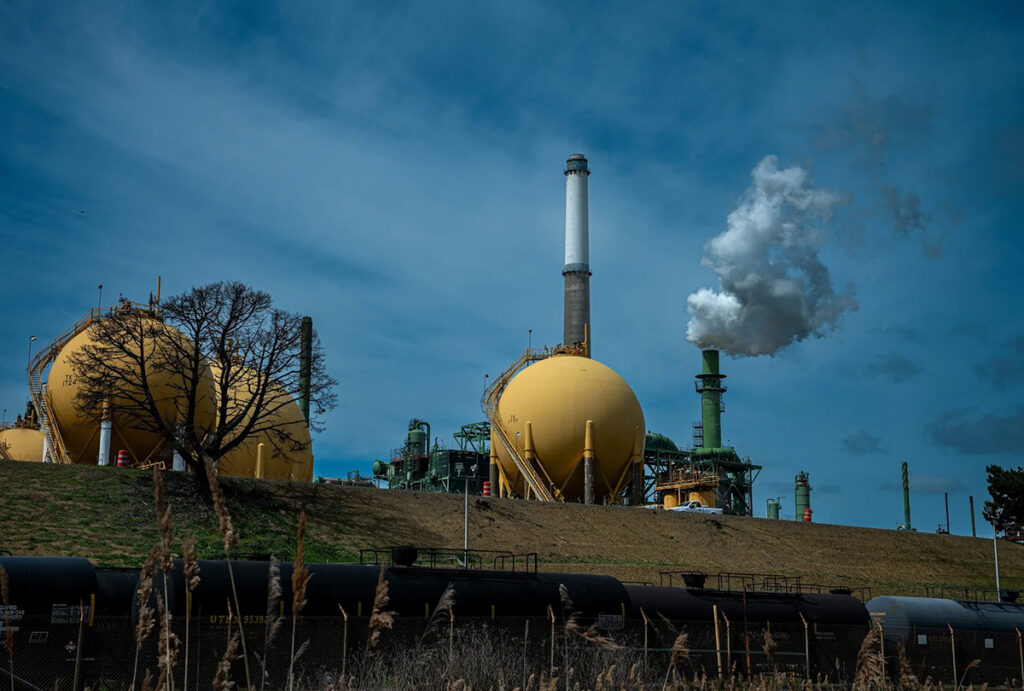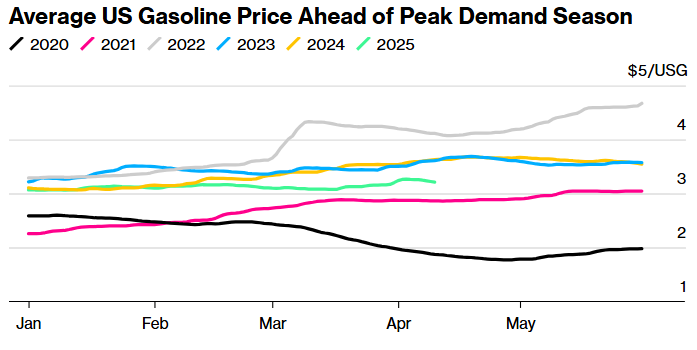California Drivers Are Paying Up as Refineries Disappear


Californians are accustomed to paying the highest gasoline prices in the US. That trend likely will continue because of the state’s reliance on a dwindling fleet of oil refineries.
The problem became acute last week after a fire took Valero Energy Corp.’s Benicia production site in the San Francisco Bay Area offline. With PBF Energy Inc.’s facility in the region already out of service due to another blaze, there was only one gasoline-making plant operating in the north of the state.
Prices for California-grade gasoline duly responded, jumping to the widest premium over Nymex futures since 2023. At the pump, prices in the state averaged $4.85 a gallon Friday, an increase of 8 cents from a week earlier.
Gasoline fetched as much as $5.90 in the most fuel-isolated counties. The nationwide average is about $3.20.
While imports of gasoline from Asia can make up some of the shortfall, West Coast drivers are unlikely to see price relief any time soon as demand ramps up leading into summer.

Source: American Automobile Association
The Golden State is a fuel island, cut off by geography from the nation’s pipeline network. It has also become a politically hostile place for Big Oil.
Governor Gavin Newsom has sought to transition away from an industry he once dubbed the “polluted heart of this climate crisis,” signing laws targeting everything from refiners’ profits to mandating the amount of fuel they have on hand.
Against that backdrop, the number of California refineries has fallen steadily. Some shut or converted to making renewable diesel and jet fuels.
The Benicia plant is slated for closure by April next year. Phillips 66’s Los Angeles refinery is set to shut in the fourth quarter.
Newsom, considered a potential presidential candidate for 2028, may have reached the limits of his approach, especially if he wants to keep living costs under control for the 39 million residents of the richest state.
He appeared to change tack last month when he urged the California Energy Commission to collaborate with the oil industry to maintain fuel supply and stem the tide of refinery closures.
But it may be too late to prevent further price increases.
–Nathan Risser, Bloomberg News
Share This:
energynow








